Why and How the CPC Works in China
 0 Comment(s)
0 Comment(s) Print
Print E-mail
China.org.cn, October 27, 2011
E-mail
China.org.cn, October 27, 2011
The international community now views China and the Communist Party of China (CPC) with increasing respect because of a series of important and symbolic events – from the "truly exceptional" Beijing Olympic Games to the fast economic growth obtained even against the backdrop of the international financial crisis. "China Model," "China Road" and "China Experience" have become hot topics of discussion both at home and abroad.
A book that answers 13 questions about how the Communist Party of China (CPC) works in China and why the Party has made great achievements in the past decades has been recently published by the Beijing-based New World Press.
The book, named Why and How the CPC Works in China, puts forward a new way of introducing China and the CPC to the world.
Where to buy this book? Click here to find out.
|
|
"The book is not a theoretical work in the traditional sense, nor an ordinary book on the history of the CPC, but an attempt to combine both organically. It is hoped that this book will increase the readers' understanding of the CPC through reviewing the history, achievements and experience of the Party in revolution and ruling the country." |
|
"This book records the whole process from the foundation of the People's Republic of China to the modern construction of the country. For many people in other countries, who have misunderstandings about the CPC, this book is definitely a must read." |
|
"This book is an important example of what China brings to the book fair every year," |
|
"In order to deal with China, you have to understand the CPC, and in order to understand the CPC, you have to read this book." |
|
"There are still many misconceptions about China that this book aims to overcome. An important point is that the book openly discusses the past mistakes of the CPC, including the issue of corruption. This is a big step forward." |
|
"The media still often make the mistake of writing stories that are not based enough on fact. It is necessary to remember how far China has come in a very short space of time." |
|
Selected Excerpts from the Book:
|
|||
|
The international community now views China and the Communist Party of China (CPC) with increasing respect because of a series of important and symbolic events – from the "truly exceptional" Beijing Olympic Games and the 2010 Shanghai World Exposition that attracted world attention to the fast economic growth obtained even against the backdrop of the international financial crisis. More>> |
|
|||
|
On October 1, 1949 the People's Republic of China was founded. It was only three years and three months after the Chinese Civil War (1946-1949) between the KMT and the CPC broke out. When the war began, none of the CPC, the KMT, the United States, the Soviet Union and other countries expected that the end would come so fast, because the CPC was much weaker than the KMT. More>> |
|
|||
|
On October 1, 1949 the People's Republic of China was founded. The whole world was watching the New China, guessing whether it would be able to consolidate its position or not. This was not unreasonable. Although an independent and unified democratic republic where the people were the masters had been established, it was still facing very serious challenges, the focus of which was no longer a military problem, but a difficult economic problem which was comparatively more complex and difficult to solve. More>> |
|
|||
|
The CPC not only has experience in leading the Chinese revolution, construction and reform, but also has learned lessons from its past serious mistakes, which caused great losses to the party, state and nation. The serious mistakes mainly refer to those committed during the period from 1957 to 1976, when the Cultural Revolution ended. More>> |
|
|||
|
On December 25, 1991 the red hammer-and-sickle flag that had been flying over the Kremlin for more than 70 years was quietly lowered, and the tricolor flag that symbolized Russia was raised, marking the demise of the Soviet Union, the world's first socialist country, founded by Vladimir Ilyich Lenin and governed by the Soviet Communist Party. More>> |
|
|||
|
In his article under the controversial title "Who Will Feed China? Wake-Up Call for a Small Planet" published in 1994, Lester R. Brown, founder of the Worldwatch Institute, pointed out that food security is the most severe challenge confronted by mankind. According to Brown, by 2030 the Chinese population will have reached 1.6 billion, which will lead to a sharp increase in the demand for food. More>> |
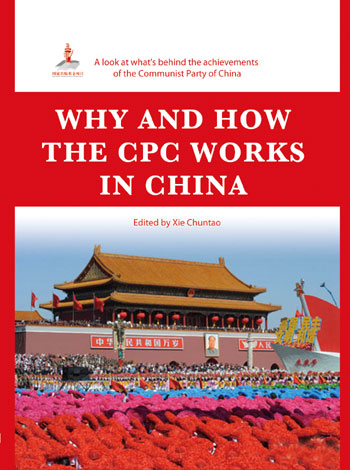
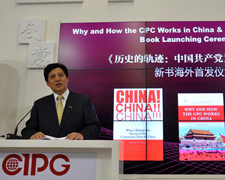
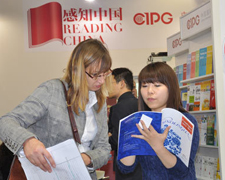
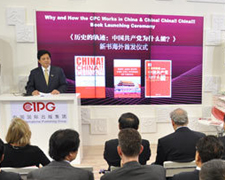
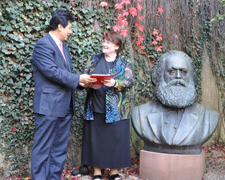








Go to Forum >>0 Comment(s)